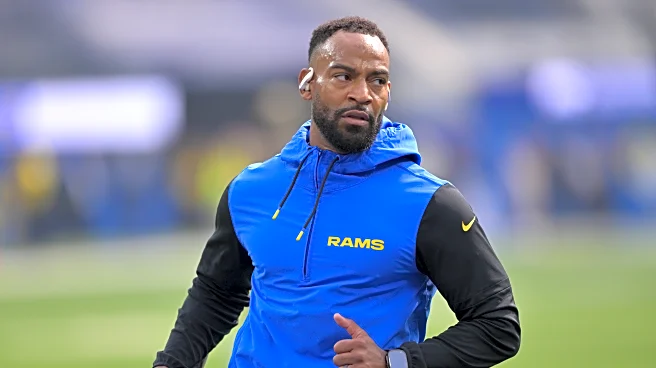What's Happening?
The ongoing conflict in Libya has severely impacted children caught in the crossfires of war. These children face multiple dangers, including the risk of drowning during sea crossings, malnourishment, dehydration, trafficking, kidnapping, and rape. As they travel through various countries and reach their destinations, they often encounter xenophobia and discrimination. The situation calls for urgent attention from international organizations and governments to address the humanitarian crisis and protect vulnerable populations.
Why It's Important?
The plight of children in conflict zones like Libya highlights the urgent need for international intervention and support. The risks faced by these children can have long-term psychological and physical effects, impacting their development and future prospects. Addressing these issues is crucial for global humanitarian efforts and the protection of human rights. The situation in Libya also reflects broader challenges in conflict resolution and the need for comprehensive strategies to ensure the safety and well-being of affected populations.
What's Next?
International organizations and governments may increase efforts to provide humanitarian aid and support to children affected by the conflict in Libya. This could involve enhanced coordination for safe passage, access to essential services, and protection against exploitation and abuse. The situation may prompt further discussions on international policies and strategies to address the root causes of conflict and support post-conflict recovery and rehabilitation.
Beyond the Headlines
The ongoing conflict in Libya raises ethical concerns about the treatment of vulnerable populations and the responsibilities of international communities in conflict resolution. It highlights the need for sustainable solutions to prevent future conflicts and protect human rights. The situation may influence global policies on migration, refugee support, and international cooperation in humanitarian crises.










